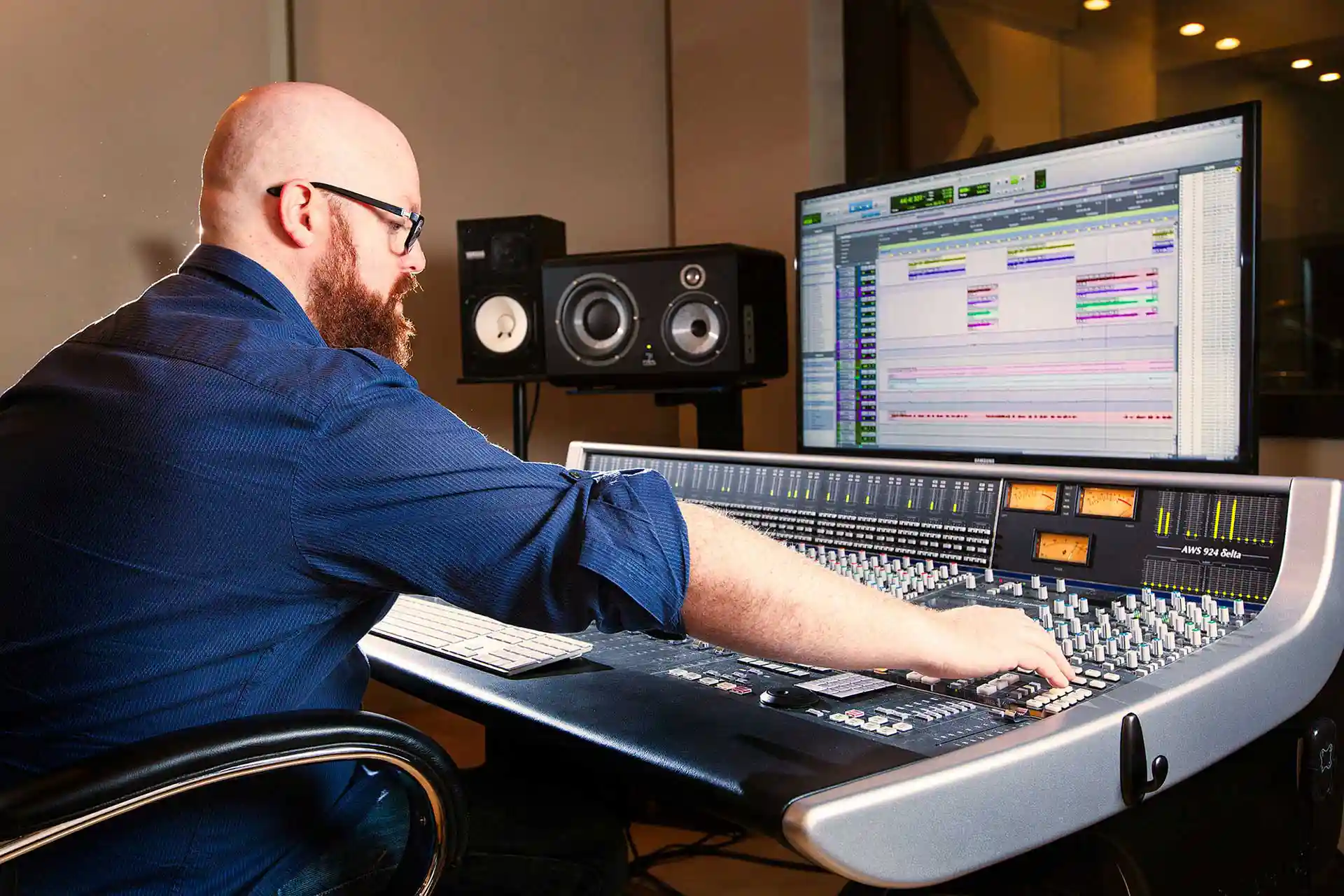This is a question we get a lot. Might be old hat to you, but if not, here goes.
What’s the difference between working with a record producer vs. a recording engineer?
A recording/mixing engineer’s primary function is technical in nature. The first job is to operate the machinery and technology of the recording studio at a very high level. They have to be smart, precise, efficient, and quick with solutions when something doesn’t work properly.
A great engineer should also understand high-level techniques for mic placement, dialing in certain gear (preamps, equalizers, compressors, effects, etc.), and have ears that can discern subtle differences in sound to ensure that what’s being captured and mixed sounds the way the producer/artist/label/whomever is paying wants it to sound.
Being a high-level recording engineer is a difficult job. I’m lucky that my right hand man is a guy named John Shelton. He’s the chief engineer at Edgewater Studios and has been the principal engineer on almost everything I’ve ever produced. John also happens to be very musical as well as a high-level session guitarist. Musicality in an engineer is a big bonus even if it’s technically not quite mandatory.I’m a record producer. My job is a little different.
If you’re comparing record-making to filmmaking, you might think of the recording engineer as the director of photography (the person in charge of all the camera people) and the mixing engineer like the film’s special effects and color grading specialists. In the movie analogy, as record producer I’m more like the film’s director and editor (and of course songwriters are like the screenwriters and the artists are the film’s stars)!
My job is to guide the entire process from start to finish. I talk with you as an artist, artist manager, or label about what the expectations are for the project. We coalesce around various creative and commercial goals. We discuss genre and reference points. We work together to pick from the available material for the record, or sometimes to source outside material.
I develop a vision for how I want the record to sound before we ever begin. I select studio musicians (where applicable, obviously some projects are for full bands and require no studio musicians). I coach bands and studio bands how to play well together. I work out song arrangements and ensure each element of a recording is supporting both singer and song. I work closely with musicians on all instruments, and I’m able to do so because I play almost every instrument featured on the types of records we produce at EMG. I’m a classically and contemporarily trained vocalist, and I work closely with vocalists to ensure they get the best possible performances.
I am also a high-level Pro Tools audio editor. I go through the performances we capture and make sure all the best moments make it into the finished composite track. When and where appropriate, I make micro-adjustments to parts to optimize the timing and tuning of instruments and vocals (this process is pretty important and gets done on most “big” records and makes a big difference to the finished product in most cases).
I then “produce the mix,” not in the sense that I mix the tracks myself (I’ve got John on my team, and he’s much better suited to mix records than I am), but I coach the mix engineer when necessary just the same as I have every other member of the team (drummer, bassist, vocalist, guitarist, etc.). Sometimes I layout exactly what I’m looking for out of a mix. Other times I let the engineer do his thing and provide feedback near the end of the process. Sometimes I put my hands on a mix and tweak myself. Other times I just give a couple of notes. Occasionally, I just say “print it.”At the end of the day, though, as a producer, I’m responsible for the finished product. It’s my job to make sure it hits its intended benchmarks in terms of quality, sound, vibe, and feel, and that it’s produced in a way that’s appropriate for the types of marketing the artist/management/label intends to perform for each single/EP/album.
Most of the time, records turn out better if you hire a producer. Sometimes those producers are also their own engineers, but at EMG, we’ve always found our results are better when John focuses on the technical while offering thoughts on the creative, and I focus on the creative while offering thoughts on the technical. Sticking to what we’re best at and keeping our ears on various aspects of what’s happening is where we’ve gotten the most mileage out of our talents.
But one way or another, working with a producer is going to be important for the vast majority of artists. Many times, when you just hire “a studio” that’s not operating as a production company, they will simply assign you an engineer without really fully understanding your needs as an artist. Our advice is always to make your next record by selecting a producer whose work you like.
Think that might be me? Contact Us today and let’s find out!

